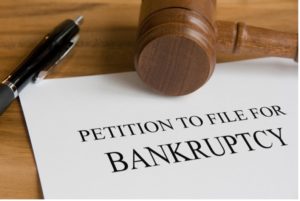
By: Parker Reynolds
In June, Representatives Ken Buck (CO-04) and Zoe Lofgren (CA-19) introduced a bipartisan bill entitled the “Bankruptcy Venue Reform Act of 2021” as H.R. 4193.[1] The recently presented bill also gained traction and support in the Senate with Senators Elizabeth Warren (D-MA) and John Cornyn (R-TX) introducing an identical version as S. 2827 late September.[2] If passed by Congress, the bill would limit where a corporation can file for bankruptcy to the district court in which the principal place of business, meaning the principal executive office of the entity, is located.[3]
Current law allows corporations to file a title 11 bankruptcy suit in any district “in which the domicile, residence, principal place of business in the United States, or principal assets in the United States of the person or entity that is the subject of such case have been located for the one hundred and eighty days immediately preceding such commencement.”[4] Essentially, this rule presents big businesses with multiple options of where to file suit, allowing them to pick a venue that will be the most favorable to them based on factors such as case law, judges, and procedures.[5] As a result of forum shopping, corporations filing bankruptcy cases have flocked to certain corporation-friendly districts, such as Delaware.[6]
Corporations pervasively and consistently partake in forum shopping when filing bankruptcy cases.[7] According to one of the sponsors of the bill, over 70% of public companies with at least $100 million in assets who filed for bankruptcy during the last twenty years filed in a state outside of their principal place of business.[8] Additionally, a 2013 study found that eight out of ten corporations who forum shopped filed their bankruptcy suits in Delaware or the Southern District of New York, demonstrating how concentrated these cases have become.[9]
There are arguments for and against forum shopping. Scholars against forum shopping take issue with corporations’ ability to manipulate outcomes and create incentives for a court to favorably treat corporations to attract large cases.[10] Additionally, creditors participating in the suit suffer a greater burden when corporations are allowed to pick a venue in their incorporated jurisdictions.[11] Others argue that having several courts specialized in bankruptcy law has brought increased predictability and judicial economy as judges more familiar with bankruptcy law are better equipped to handle complex cases.[12] Supporters of the current bankruptcy rules believe that both debtors and creditors benefit from having a specialized court to quickly handle their case rather than having it drag on.[13]
The push for bankruptcy venue reform is certainly not new.[14] Members of Congress introduced the Bankruptcy Venue Reform Act during the 115th and 116th Congresses, but ultimately, neither chamber ever voted on the Act.[15] In order to become law, the bill must gain enough momentum and political will to make the push out of the House and Senate Judiciary Committees.[16] The bill likely has garnered President Biden’s support, who backs Senator Warren’s plan to “close loopholes that allow the wealthy and corporate creditors to abuse the bankruptcy system at the expense of everyone else.”[17] If the bill succeeds and becomes law, it will mark the first change to bankruptcy venue rules since 1984.[18]
[1] Bankruptcy Venue Reform Act of 2021, H.R. 4193, 117th Cong. (2021).
[2] Bankruptcy Venue Reform Act of 2021, S. 2827, 117th Cong. (2021).
[3] See id. at § 3.
[4] 28 U.S.C. § 1408 (1984).
[5] See Samir D. Parikh, Modern Forum Shopping in Bankruptcy, 46 Conn. L. Rev. 159, 193-96 (2013).
[6] See Forum shopping by Venue districts—Two-Variable Study summary, UCLA-LoPucki Bankruptcy Research Database, https://lopucki.law.ucla.edu/design_a_study_two_variable.php (last visited Oct. 10, 2021).
[7] See Special Committee on Venue, National Conference of Bankruptcy Judges, Report on Proposal for Revision of the Venue Statute in Commercial Bankruptcy Cases 17 (2018).
[8] Press Release, Elizabeth Warren, Warren, Cornyn Introduce Bill to Prevent Large Corporations From ‘Forum-Shopping’ in Bankruptcy Cases, https://www.warren.senate.gov/newsroom/press-releases/warren-cornyn-introduce-bill-to-prevent-large-corporations-from-forum-shopping-in-bankruptcy-cases (Sept. 23, 2021).
[9] See Parikh, supra note 5, at 179.
[10] See Lynn M. LoPucki & William C. Whitford, Venue Choice and Forum Shopping in the Bankruptcy Reorganization of Large, Publicly Held Companies, 1991 Wis. L. Rev. 11, 34 (1991).
[11] See id. at 24-27.
[12] See Jared A. Ellias, What Drives Bankruptcy Forum Shopping? Evidence from Market Data, 47 J. Legal Stud. 119, 120 (2018).
[13] See Kevin M. Lewis, Congressional Research Service, Should Federal Law Restrict Where a Company May File Bankruptcy? 2 (2018).
[14] See Mark Salzberg & Kyle Arendsen, Bankruptcy Venue “Reform” – What Are The Odds This Time?, Restructuring GlobalView (Oct. 5, 2021), https://www.restructuring-globalview.com/2021/10/bankruptcy-venue-reform-what-are-the-odds-this-time/.
[15] Bankruptcy Venue Reform Act of 2020, S. 5032, 116th Cong. (2020).; Bankruptcy Venue Reform Act of 2020, S. 2282, 115th Cong. (2018).
[16] See Mark Salzberg & Kyle Arendsen, supra note 14.
[17] The Biden Plan for Bankruptcy Reform, Biden Harris, https://joebiden.com/bankruptcyreform/ (last visited Oct. 10, 2021).
[18] See Committee on Courts and the Administrative System, Venue Options for Corporate Bankruptcy Cases: Should the Current Statute be Amended?, National Bankruptcy Conference 2011 Annual Meeting, 2-3, 12 (2011), http://nbconf.org/wp-content/uploads/2015/10/2011-Report-of-Courts-Committee-on-Venue.pdf.

